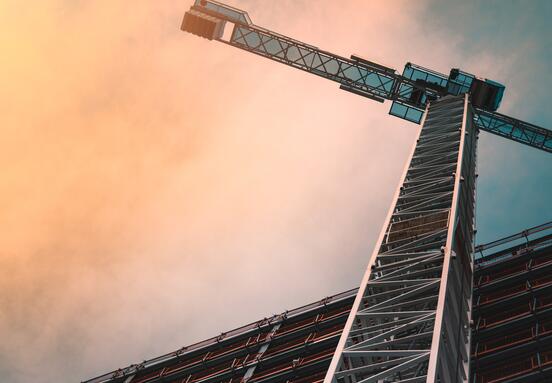The COVID-19 pandemic had a strong negative impact on the global economy throughout 2020, with a 6.4% yoy drop in GDP in the EU-27 area. Relatively, Romania’s GDP decreased by 3.9%. The lockdown period, as well as the restrictive measures instated by the Government, have led to the negative contribution to GDP growth of important economic sectors such as agriculture, industry and hospitality. With a 6.6% share of GDP, the construction sector seemed not only to survive the unprecedented conditions but to also thrive in 2020, being one of the few sectors with a positive contribution (0.8%) to the GDP growth.
“However, last year the local real estate market continued its evolution, the industrial and residential sectors exceeding even the most optimistic expectations. Although the future of the office market is uncertain, the volume of projects announced for delivery in 2021 indicates a confidence of developers in the ability to adapt to new conditions.”, says Ilinca Timofte, Crosspoint Real Estate Research Analyst.
The Romanian investment market went through a positive evolution in 2020, with a total investment volume which exceeded the expectations – volume reached a little over 805 M€ in 2020, a 32% increase yoy. Despite the uncertainty surrounding the future, the office sector remained in 2020 the investors’ preferred type of asset, with an 85.3% share in the total investment volume, followed by the industrial market with only 10.3% share in the total.
Bucharest attracted the majority of investments in 2020 (83%), although in the previous couple of years regional markets have emerged as a promising alternative to the capital city. However, in the current circumstances, investor approach has been cautious and betting on a more stable, established market such as Bucharest.
The market sentiment for 2021 remains positive, with over 140M EUR investments recorded in the first 4 months of the year and high hopes for a fast return to the previous years’ normal.
With the delay of several projects due for delivery this year, the current stock stands at around 3.3 M sqm. Over 150,000 sqm of new office space have been delivered in 2020. While most of the projects expected to be delivered during the year have been completed on time, in some cases there have been partial deliveries or even postponements. Still, 2021 is expected to witness the addition of some 230,000 sqm of new office space to the current stock. While most developers remained unfazed and went on with the delivery of their projects, mainly because they were already under construction, the new turn the market has taken in 2020 has determined others to reconsider their plans. Indefinite postponements in deliveries and even reconversions of planned office buildings have been announced or at least taken into consideration by several developers.
A little over 200,000 sqm of office space were leased in Bucharest in 2020, a 46% fall in demand yoy. Furthermore, most of the take-up (45%) consists in renewals and renegotiations. This might be a sign that, while headline rents have remained stable, contracts are being heavily negotiated and the incentives offered by owners are larger than before the COVID-19 crisis (longer rent-free periods, larger owner contributions to fit-out costs). Companies are also still figuring out their strategies for the future and are currently choosing the safer, more cost-efficient option of remaining in their current locations, at least for a short to medium term.
Many companies, especially those operating in the IT&C sector, have adopted work from home until the end of the year, with some tenants planning a comeback later in 2021 or even 2022. They were still, however, the main driver of demand for office space in Bucharest, with a 31% share in total take-up in 2020.
A small number of sub-leases were recorded and various large occupiers are planning on downsizing and subletting the extra space. As a consequence of the health crisis, the healthcare sector has reached the 3rd rank in the take-up top, with a 10% share in demand for 2020. However, as time progresses, the ideal workplace seems to become more of a mix between work from home and work from the office, so the impending sense of dramatical change surrounding the industry in 2020 might not be so right after all.
People’s need to connect in person, the desire to feel part of a team, the lack of proper technologies in employees’ homes, the mundane distractions of working from home as well as the fact that workers can no longer balance their work-life relation working exclusively remotely are few of the problems presented in an exclusive WFH scenario. Most likely the future of work will have a larger amount of flexibility compared to the pre-pandemic levels but office buildings will remain a strong tool for employees.
The market shows signs of recovery in the new year, the volume of office space rentals has already increased by 23% in the first quarter of 2021, compared to Q1 2020. In total, over 68,000 square meters of office space were rented in Bucharest in the first three months of the year, out of which 44% were pre-leases.






